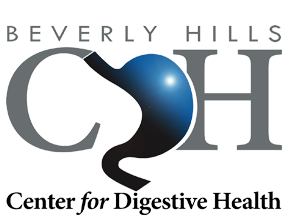Why You Should Get Screened for Colorectal Cancer
BOOK APPOINTMENTScreening is an approach that looks for cancer or pre-cancer in individuals who don’t have any signs or symptoms of illness. Regular screenings are one of the best and most effective ways to protect yourself against colorectal cancer.
This is because screening can catch the disease when it’s still in its early stages and before it has had a chance to spread. The earlier you detect colorectal cancer, the more treatment options you have.
What Is Colorectal Cancer?
Although it is typically thought of as a cancer that primarily affects men, everyone is vulnerable to colorectal cancer.
Most colorectal cancers begin as polyps, which are small growths on the inner lining of the colon or rectum. Not every polyp becomes cancer, but if it does, it can quickly spread to other parts of the body.
This is why early detection matters. Catching a polyp in the early stage of growth (it can take up to 10 to 15 years to progress into cancer) will prevent it from developing and spreading. Caught early, the five-year relative survival rate is approximately 90%. However, less than half of colorectal cancers are detected at this stage.
Detecting Colorectal Cancer
To help detect colorectal cancer and other GI conditions as early as possible, screenings are recommended beginning at age 45.
A colonoscopy is the most common way to screen for colorectal cancer, but it isn’t the only way. Your doctor can also test for it with a stool sample or through a virtual colonoscopy that uses X-rays and computer generated images.
How to Reduce Your Risk of Colorectal Cancer
There are also several lifestyle habits that are protective and health-enhancing and that can help prevent colorectal cancer from forming. These include eating a diet that minimizes animal products and emphasizes fruits, vegetables, and whole grains, exercising regularly, limiting alcohol, and avoiding tobacco.
Symptoms to Discuss with Your Doctor
Sometimes it’s better not to wait for your annual screening. If you notice any of the following symptoms, talk to your doctor as soon as possible.
- A change in your bowel movements
- Blood in your stool
- Ongoing abdominal discomfort
- Unexplained weight loss
To schedule your colorectal cancer screening, contact your Beverly Hills and Los Angeles gastroenterologist Dr. Davidson today.
Our Blogs
Accurate Diagnostics for Anorectal Strength and Function
Back to BlogsAre you having problems producing healthy bowel movements? The problem may be the muscles around your digestive tract either not coordinating properly or lacking strength. To get your GI problems addressed as soon as possible, visit the Beverly Hills...
Pelvic Floor Dysfunction?
Back to BlogsPelvic floor dysfunction is the inability to relax and coordinate your pelvic floor muscles to allow for smooth defecation. Fortunately, there are treatments available, including biofeedback, medications, and physical therapy. Reclaim strength and comfort...
Cutting-Edge, Compassionate Care Can Help You Find Hemorrhoids Relief
Back to BlogsHemorrhoids can be debilitating and painful, but treatment is available. If you’re suffering from hemorrhoids, make an appointment at the Beverly Hills Center for Digestive Health. We offer cutting-edge, compassionate care to help you find hemorrhoids...
Call to Schedule
Our office is available to answer your questions and evaluate your symptoms.

Phone
(310) 855-0222
Fax: (949) 404-6467
Hours
Mon - Fri: 9am – 5pm
Sat - Sun: Closed